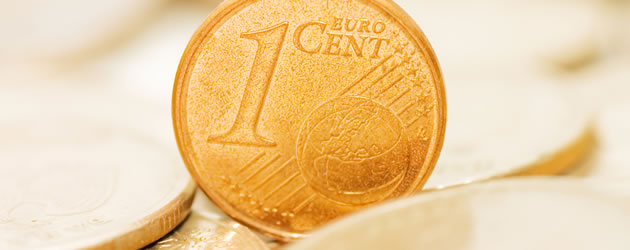
The Pound to Euro exchange rate (GBP/EUR) reached a fresh 1-year high of 1.2149 yesterday afternoon as investors reacted to a “strengthening” of the European Central Bank’s forward guidance. The Bank of England’s decision not to modify its own forward guidance policy was seen as bullish for the UK currency.
Neither Central Bank opted to modify its benchmark interest rate; this leaves the BoE rate at 0.50% and the ECB rate at 0.25%.
The single currency began tumbling against the Pound when ECB President Mario Draghi reiterated his pledge to maintain loose monetary policy. Featuring persuasive language such as “strongly” and “firmly”, the updated forward guidance statement was seen as slightly more dovish than previous speeches:
“The Governing Council strongly emphasizes that it will maintain an accommodative stance of monetary policy for as long as necessary”.
“We firmly reiterate our forward guidance that we continue to expect the key ECB interest rates to remain at present or lower levels for an extended period of time”.
Europe’s soft inflationary outlook and the recent rises in money market interest rates were posited as the biggest threats to economic stability. Accordingly, Mario Draghi intimated that the ECB is “ready to consider all instruments available”, which stoked fears/hopes that the European Central Bank could reduce interest rates – benchmark and deposit – or introduce a QE-style bond-buying programme at some point this year.
The likelihood of any further monetary easing depends entirely on the Eurozone CPI rate of inflation. If the Consumer Price Index continues to flounder below 1.0% then ECB intervention is a far more realistic proposition. This is because policymakers are wary of letting inflation slip into negative territory, as falling prices can dissuade consumers from making purchases of things that will cost less in the future.
A depreciation of the Euro is likely to help drive inflation higher, and it is reasonable to suggest that Draghi’s “strengthening” of forward guidance was designed to weaken the single currency.
In stark contrast to the ECB’s verbal intervention, the Bank of England’s announcement was notable for its omission of a statement.
Dark mutterings in the build up to the announcement suggested that the Bank might have reacted to faster-than-expected improvements in the UK labour market by pushing back the 7.0% Unemployment threshold to 6.5%. This would have had a negative impact on BoE rate hike speculation and subsequently could have weakened demand for the Pound.
However, with the 7.0% threshold intact, markets still expect the BoE to raise rates at some point between now and the start of 2015. This positive rate bias helped the Pound to Euro exchange rate reach a yearly high yesterday afternoon.

Comments are closed.